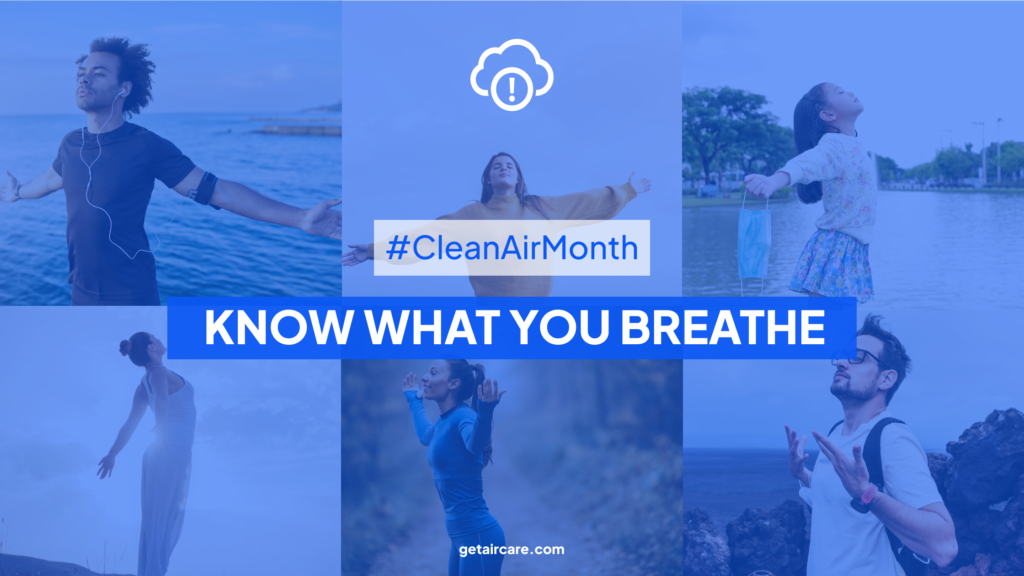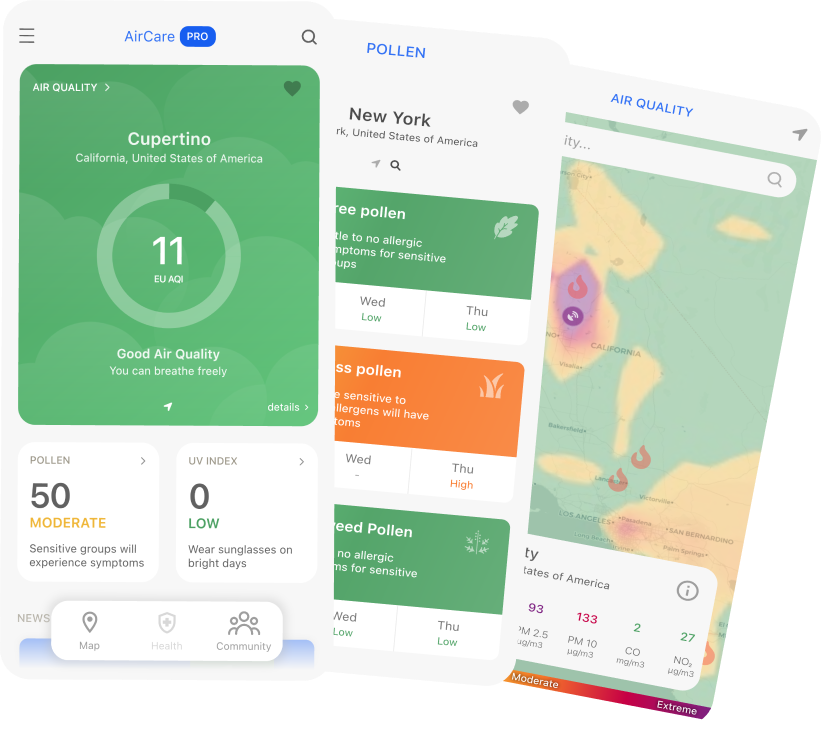Clean Air Month is observed every May across the United States. It aims to create awareness about the importance of clean air, the relationship between air pollution and our health, and how to improve air quality. Clean air does not only benefit human health; it also helps environmental and climate health as well.
Many states recognize clean Air month in America, and events are held to promote it.
AirCare Clean Air Month 2022 Campaign
At AirCare, we launched a month-long campaign with the goal of educating people about the impact clean air has on our lives and encouraging them to take action and improve the air quality – both locally and globally.

Why Do We Let Our Children Breathe Polluted Air?
The first part of our campaign was dedicated to air pollution’s effect on children.
The protective barrier surrounding children’s brains is not fully developed, and children’s nasal passages aren’t as effective at filtering out pollutants. Developing lungs, immune, and metabolic systems are also at risk.
Children have unique activity patterns and behavior. They typically spend more time outdoors and are more physically active than adults. Time outdoors coupled with faster breathing during exercise increases children’s relative exposure to air pollution.
There Are No” Safe” Levels of Pollution for Senior Citizens
The second part of AirCare’s campaign for Clean Air Month 2022 concerned senior citizens.
Air pollution affects senior citizens more than any other age group. The most common reason is as people age, their immune system slows down. The lungs of senior citizens are not capable of filtering clean air and removing harmful pollutants.
Are Our Unborn Children Safe in the Womb?
We decided to speak about air pollution and unborn children for the third part of our campaign.
Research suggests that even a tiny amount of air pollution may have long-term health effects on developing fetuses.
Exposure to polluted air was associated with an increased risk of preterm birth in 19 of 24 studies (79%) and low birth weight in 25 of 29 studies (86%). In addition, pregnant women with asthma are at high risk of adverse birth outcomes.
Air pollution is detrimental to the health of millions of mothers and babies worldwide.
Are Our Pets Immune to Air Pollution?
The last part of AirCare’s campaign was regarding our furry friends. Unfortunately, many scientific studies have confirmed that air pollution can harm pets.
Studies have found dogs that lived in homes where outdoor pesticides were used had a 70% higher chance of developing canine malignant lymphoma, a form of cancer.
Cats that lived in homes with a high concentration of household indoor air pollutants (second-hand smoke, cooking fumes, household chemicals) had a higher rate of respiratory diseases such as feline asthma, chronic bronchitis, and lung cancer.
Clean Air Month helps drive a positive change in public knowledge, and it is a chance to make the air healthier and cleaner for everyone. AirCare will continue to provide resources to educate people about the differences we can all make and enable them to take action to reduce air pollution.
Do you want to know the quality of the air you breathe? Download AirCare – our free mobile app that tracks air pollution from your pocket, and check out the AirCare blog!





